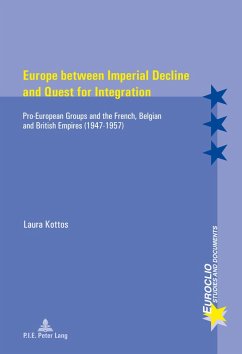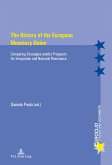The book assesses the role of three pro-European pressure groups (the European Union of Federalists, the Socialist Movement for the United States of Europe and the European League for Economic Cooperation) and their impact in fostering new relations between Europe and the colonies between 1947 and 1957. It argues that the association of the overseas territories into the European Economic Community in 1957, the founding stone of today's European policy for aid and development, was to a large extent the result of the intense intellectual activity that took place in these transnational groups upstream of the signature of the Treaty of Rome.
A transnational approach of these groups uncovers the broader objectives of the European policy: that the association would in the long run revive the declining links between Europe and its overseas territories. On the one hand, part of the influential British and continental pro-European elites wanted to create a European Commonwealth which would establish new preferential and intergovernmental links between countries of the Council of Europe, the British Dominions and the European colonies. On the other hand, a number of French and Belgian pro-Europeans wanted to create a Eurafrican community, a federation linking Europe and Africa economically and politically. Both the European Commonwealth and the Eurafrican community were designed in response to postwar challenges: the dollar gap, the communist threat in the Third World, the rise of new African and Asian nationalisms or the position of European powers in a new globalised world.
A transnational approach of these groups uncovers the broader objectives of the European policy: that the association would in the long run revive the declining links between Europe and its overseas territories. On the one hand, part of the influential British and continental pro-European elites wanted to create a European Commonwealth which would establish new preferential and intergovernmental links between countries of the Council of Europe, the British Dominions and the European colonies. On the other hand, a number of French and Belgian pro-Europeans wanted to create a Eurafrican community, a federation linking Europe and Africa economically and politically. Both the European Commonwealth and the Eurafrican community were designed in response to postwar challenges: the dollar gap, the communist threat in the Third World, the rise of new African and Asian nationalisms or the position of European powers in a new globalised world.
Dieser Download kann aus rechtlichen Gründen nur mit Rechnungsadresse in A, D ausgeliefert werden.









